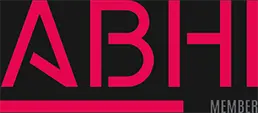The Challenge of Compliance in Digital & SEO Promotion
In today’s digital era, pharmaceutical companies are leveraging online platforms to disseminate crucial regulatory information to healthcare professionals (HCPs). While the internet offers unprecedented accessibility, it also presents challenges in adhering to strict regulatory frameworks. A pressing concern arises: Is having a Prescribing Information (PI) page indexed by search engines and appearing in search engine results pages (SERPs) considered promotional, even if the page requires users to confirm they are HCPs before accessing the content?
This question isn’t just technical – it’s deeply rooted in compliance with the Medicines and Healthcare products Regulatory Agency (MHRA) regulations and the Association of the British Pharmaceutical Industry (ABPI) Code of Practice. In this blog post, we’ll dig into the regulatory landscape, potential risks, and best practices to ensure compliance while maintaining effective communication with HCPs.
Understanding the Regulatory Framework
1. Prohibition of Promoting Prescription Medicines to the Public
In the United Kingdom, promoting prescription-only medicines (POMs) to the general public is strictly prohibited. Here are the key regulations you need to be aware of:
- Medicines (Advertising) Regulations 1994 and Human Medicines Regulations 2012: These laws prohibit advertising POMs to the public, defining advertising broadly to include any form of promotion.
- MHRA Blue Guide: This guidance document elaborates on the interpretation of advertising regulations, emphasising the importance of preventing public exposure to promotional content about POMs.
- ABPI Code of Practice: Specifically, Clause 26 prohibits advertising POMs to the public, and Clause 28 addresses digital communications, stipulating that companies must take reasonable steps to restrict access to promotional content intended for HCPs.
2. Digital Communications, SEO, and Accessibility
With digital marketing, SEO strategies, and online information sharing on the rise, the boundaries of accessibility have expanded significantly. Clause 28.3 of the ABPI Code states:
“Pharmaceutical companies must ensure that promotional material about prescription-only medicines on websites designed for healthcare professionals and others who are qualified to prescribe or supply medicines is not accessible to the general public.”
This clause underscores the responsibility of pharmaceutical companies to proactively prevent public access to promotional content, including PI pages and other promotional materials that may be optimised for search engine visibility.
Risks of SEO Poisoning for Pharmaceutical Content
One often-overlooked risk when considering search engine visibility is SEO poisoning. SEO poisoning is a technique used by malicious actors to increase the prominence of their harmful websites in search engine results, often making them appear similar to legitimate websites. In the context of pharmaceutical promotional materials, SEO poisoning presents a unique set of challenges:
- Potential Misinformation: Malicious actors may use SEO poisoning to create fake websites that mimic legitimate pharmaceutical sites. These sites may promote false information about prescription-only medicines (POMs), which could not only mislead healthcare professionals but also compromise patient safety.
- Compliance Risks: If users are directed to harmful websites that impersonate legitimate pharmaceutical content, it can lead to confusion and negatively impact a company’s compliance standing. Even if the original content is compliant, SEO poisoning can cause misinformation to proliferate, inadvertently associating the pharmaceutical company with misleading or dangerous content.
- Typo-squatting and Blackhat SEO: Attackers may register domains similar to a pharmaceutical company’s promotional page using typo-squatting techniques and optimise them to rank highly in search engines. If these domains rank alongside legitimate promotional materials, users might mistake them for the real thing. This compromises both the credibility of the original promotional material and the compliance measures taken to restrict public access.
How to Mitigate the Risks of SEO Poisoning
To address the potential threat of pharma SEO poisoning:
- Monitor Search Engine Listings: It is critical to regularly monitor search engine results for fake or misleading pages that resemble your brand or promotional materials. Tools like Digital Risk Monitoring (DRM) can help identify lookalike domains.
- Typo-squatting Detection: Employ typo-squatting detection tools to identify and take action against domain variations that may be attempting to mislead users.
- Pro-active Communication: Ensure that healthcare professionals and other stakeholders know how to identify your official promotional pages, and encourage them to report any suspicious links or sites.
Analysing the Compliance Implications
1. The Risk of Search Engine Indexing
When a PI page or other promotional materials are indexed by search engines like Google, they become discoverable by anyone using relevant search terms. This presents several compliance risks:
- Public Exposure: Even if the PI content itself is behind an access control (e.g., an HCP confirmation page), snippets of the content may appear in SERPs, inadvertently promoting the medicine to the public.
- Promotion via Metadata: Titles, meta descriptions, and URLs can reveal promotional information about POMs, which is considered advertising.
- Regulatory Non-Compliance: Such exposure can be interpreted as promoting POMs to the public, violating MHRA regulations and the ABPI Code.
2. Limitations of Post-Click Access Controls
While requiring users to confirm their HCP status before accessing PI content is a good practice, it doesn’t fully mitigate the initial exposure in SERPs. The public can still see:
- Medicine Names and Indications: Revealed through page titles and meta descriptions.
- Promotional Language: If not carefully managed, promotional phrases may appear in search snippets.
3. Precedents and Regulatory Expectations
Regulators expect companies to prevent public access proactively. The MHRA and ABPI have made it clear that:
- Reactive Measures Are Insufficient: Simply placing an access control after the user clicks a link does not absolve the company of responsibility for public exposure.
- Search Visibility Constitutes Promotion: If the public can find the content via search engines, it may be considered a form of prohibited advertising.
Best Practices for Ensuring Compliance
1. Prevent Indexing of Promotional Materials
To avoid unintended promotion:
- Use ‘noindex’ Meta Tags: Add <meta name=”robots” content=”noindex, nofollow”> to the HTML head section of promotional pages to instruct search engines not to index them.
- Configure robots.txt: Update your robots.txt file to disallow crawling of directories containing promotional content.
- Exclude from Sitemaps: Ensure that promotional pages are not included in XML sitemaps submitted to search engines.
2. Implement Even More Robust Access Controls
- HCP Verification: Require users to log in or register using professional credentials (e.g., GMC number) before accessing promotional content.
- Clear Disclaimers: Include prominent notices stating that the content is intended for HCPs only.
3. Monitor Search Engine Listings
Regularly perform the following:
- SERP Checks: Search for your promotional pages using relevant keywords to ensure they are not appearing in SERPs.
- Audit Metadata: Review page titles and meta descriptions to ensure no promotional content is inadvertently exposed.
4. Maintain Up-to-Date Technical Measures
- Stay Informed: Keep abreast of changes in search engine algorithms that might affect indexing behaviour.
- Technical Audits: Periodically audit your website’s technical configurations to ensure continued compliance.
5. Consult Your Legal and Compliance Teams
- Expert Review: Before making promotional content available online, have your legal or regulatory affairs team review the strategy to ensure it aligns with current regulations.
- Documentation: Keep records of compliance measures taken, in case of regulatory inquiries.
Balancing Accessibility and Compliance
Navigating the balance between providing essential information to HCPs and adhering to strict promotional regulations is no easy feat. But it is doable, and here are a few strategies that can help:
- Direct Communication Channels: Share promotional content through secure, direct channels such as email newsletters to verified HCPs or via password-protected portals. By doing this, you’re ensuring that only the right people get the information.
- Professional Platforms: Utilise platforms specifically designed for HCPs, where access is controlled and content is not indexed by public search engines. These platforms make it much easier to comply with regulations.
- Content Segmentation: Separate public-facing content from professional materials, ensuring there are clear boundaries. Keep public content informative but non-promotional, and make it easy for HCPs to find the more detailed promotional information they need through secure access.
Proactive Compliance Strategies for Search Engine Promotion
The indexing of promotional materials, including PI pages, by search engines poses a significant compliance risk under MHRA regulations and the ABPI Code of Practice. Even with access controls requiring users to confirm their HCP status, the visibility of promotional pages in SERPs can be considered promotional to the general public, a practice explicitly prohibited for POMs.
Pharma companies must take proactive measures to prevent promotional pages from being indexed and appearing in search results. By implementing technical controls, enhancing access restrictions, and engaging in regular compliance audits, companies can effectively provide necessary information to HCPs while maintaining adherence to regulatory requirements.
How Can we Help?
If you’re uncertain about how to ensure your online content stays compliant, or if you need help navigating the complexities of search engine visibility and SEO for your promotional materials, we’re here to help. We specialise in developing compliance-focused digital solutions for the pharmaceutical industry.
Drop us a line to learn more about our pharma SEO and Search Engine Risk (SER) management services. Let us help ensure your promotional content reaches the right healthcare professionals without compromising compliance.



